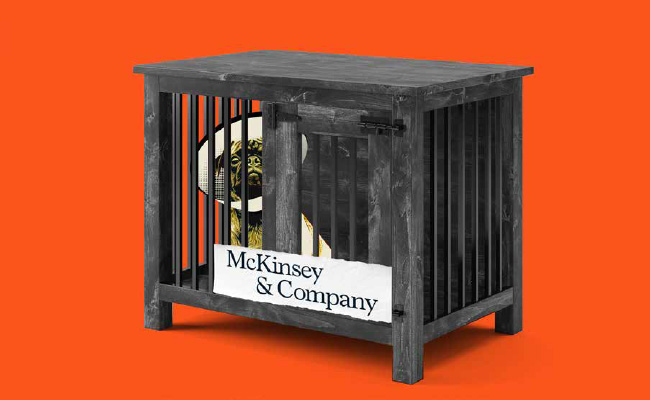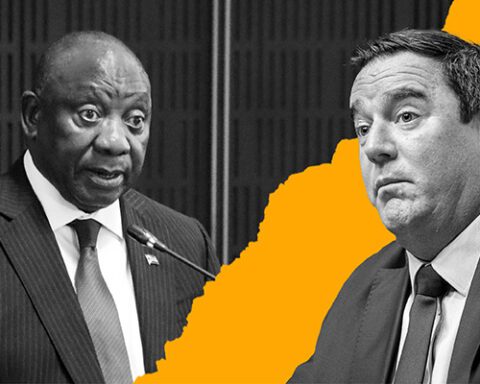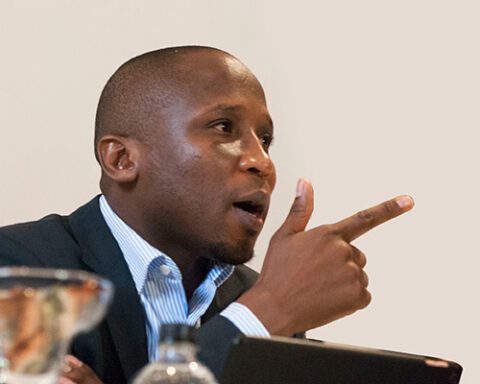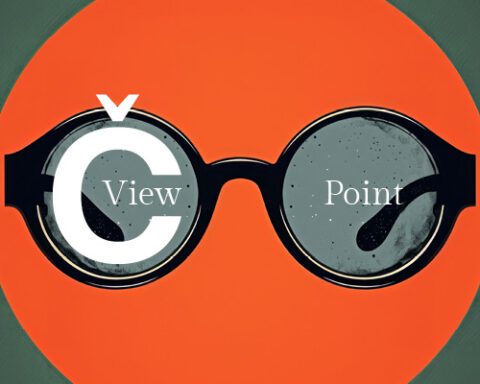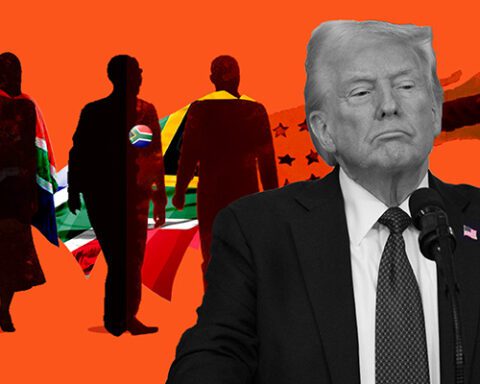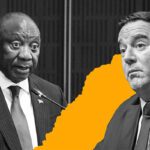If consulting giant McKinsey hoped its $122m “settlement” with the US department of justice was all the sanitiser it needed to rehabilitate its reputation in South Africa, it appears to have badly miscalculated.
After the US announced the penalty, McKinsey haughtily concluded that this “resolves” all investigations in South Africa, adding that it welcomed the “closure of this regretful situation”. As if a staffer had been caught on camera pickpocketing a homeless person around the precinct of its Sandton office.
Within hours, Business Unity South Africa (Busa), the main lobby group for the private sector, announced it was “partnering” with McKinsey on an event to connect policymakers, civil society organisations and business leaders as part of the G20, a forum of countries representing 80% of the world’s GDP.
President Cyril Ramaphosa last month accepted the G20 presidency on South Africa’s behalf from Brazil; he will hand it over to the US’s Donald Trump next year. For a country on the mend and seeking to showcase its economic potential, it’s a big deal – and McKinsey clearly wants to be in that orbit.
But the consultancy’s rehabilitation tour got off on a sour footing when the National Treasury told Bloomberg News it has no plans to work with the company on the G20. “There is no partnership between the South African government and McKinsey,” it told the news agency. “The G20 Finance Track has no plans to work with McKinsey.”
This suggests that as much as the US department of justice might be swigging celebratory tequilas at its settlement last week, the South African government may be none too impressed, given the scale of the damage these consulting companies caused during the presidency of Jacob Zuma.
Michael Marchant, the head of investigations at non-profit organisation Open Secrets, says the $122m fine “pales in comparison” to the R56bn extracted from Eskom and Transnet during the state capture era, thanks to consultants like McKinsey.
It’s a common view – and McKinsey’s G20 partnership with Busa has provoked fierce criticism from other business organisations.
“Busa should withdraw from the partnership with McKinsey,” Black Business Council CEO Kganki Matabane tells Currency. “McKinsey will use this partnership to promote its business and earn more money, which it can then use to pay that fine.”
He says Busa is frequently critical of the government when it allows corrupt individuals in its ranks to overstay their welcome. “Busa lectures government about this, now it goes and does the same thing – these business organisations ought to practice what they preach.”
The Black Business Council believes McKinsey’s fine is ultimately petty change for the global organisation, which made a record $16bn revenue last year. A more meaningful sentence, Matabane says, would be to ban it from securing business in South Africa for a minimum of five years.
“Otherwise, the message that last week’s settlement sends is that if you’re a large organisation, you can buy yourself out of trouble, and that law enforcement is only for the poor. I can tell you, if this was a small company, it would be out of business by now,” he says.
This imbalance is all the more glaring, says Matabane, because McKinsey has failed to take full responsibility for the bribes and instead tried to pin all its South African wrongdoing on former managing partner Vikas Sagar.
In its statement, McKinsey attributed the debacle to conduct by “an employee”, Sagar, who “concealed his unlawful conduct from the company”. Sagar was fired seven years ago, but the firm has not disclosed disciplinary action against anyone else.
Matabane says it is exceptionally unlikely that one person did this all.
“We all know that large contracts like those with Eskom and Transnet work according to a chain of command. It’s never just one person who is responsible for it all – that’s not how corporations work.”
McKinsey’s lone gunman
The problem is that McKinsey’s South African nadir isn’t an outlier. It is entirely in step with numerous tales of unethical behaviour levelled at the firm since its founding in Chicago in 1926. Many are recorded in the 2022 book, When McKinsey Comes to Town, which aims to expose the “hidden influence of the world’s most powerful consulting firm”.
In a chapter covering McKinsey’s activities in South Africa, one company staffer describes the firm’s work as a “car crash in slow motion”. The book reveals how Sagar asked a colleague for help to “write someone’s MBA thesis” – and that person turned out to be Siyabonga Gama, Transnet’s former head of freight rail, who is now standing trial in the Transnet state capture case.
This makes its “single rogue consultant theory” sound even more implausible.
Nonetheless, McKinsey’s claim will be tested when the identity of “foreign official 1” and “foreign official 2” are revealed and tested in court. These two individuals, who were only identified by these monikers in Sagar’s plea deal, were the executives at Eskom and Transnet who received the bribes.
The 61-page “deferred prosecution agreement” signed by McKinsey’s general counsel, Jonathan Slonim, its chief legal officer, Pierre Gentin, and US prosecutors, provides a detailed timeline of precisely how the bribery happened.
In that document, McKinsey speaks of how Sagar struck up relationships with two specific companies – not identified, but which appear to be Regiments Capital and Trillian Capital – which wanted to become McKinsey’s “Black empowerment partners” on contracts struck with Transnet and Eskom.
McKinsey admits that between 2012 and 2016, it “agreed with others to bribe foreign officials in South Africa to obtain and retain business”, with help from co-conspirators, apparently including Trillian and Regiments. They helped obtain “confidential details” from Transnet and Eskom, which it used to submit tenders for consulting contracts.
McKinsey says Sagar knew well “that a portion of the proposed consulting fees from the contracts would be used to pay bribes to ‘foreign official 1’ and ‘foreign official 2’”.
In return, “foreign official 1 acted as McKinsey’s inside man at Transnet, providing confidential inside information [and] orchestrating the award of multiple lucrative contracts to McKinsey”.
It was the same at Eskom, only this time bribes were paid to “foreign official 2”.
To avoid being found out, Sagar met his co-conspirators at coffee shops, restaurants and other places – anywhere, it seemed, other than Transnet or McKinsey’s offices – and made sure to use his personal email addresses.
Former Transnet CEO Brian Molefe, who later headed Eskom, will be in the dock when the Transnet state capture case goes to court in January. So too will be his former chief financial officer at both companies, Anoj Singh, as well as Gama.
The others who were arrested include former Regiments executives Eric Wood, Niven Pillay and Litha Nyhonyha, Trillian Asset Management director Daniel Roy, and Kuben Moodley, an alleged fixer for the Gupta family.
If McKinsey has been less than scrupulous in its disclosure to prosecutors, you can be sure any other errant consultants will be outed in that trial.
Sign up to Currency’s weekly newsletters to receive your own bulletin of weekday news and weekend treats. Register here.
